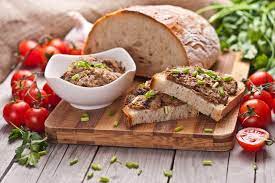In a world where food insecurity, environmental degradation, and health concerns are prevalent, the adage “Enough is as good as a feast” rings truer than ever before. This timeless phrase encapsulates the essence of moderation, sustainability, and mindful consumption, offering profound insights into building a brighter future for our food systems. As we stand at the crossroads of innovation and tradition, it’s imperative to reimagine our approach to food production, distribution, and consumption. By embracing the principles of “Enough is as good as a feast,” we can pave the way for a more equitable, resilient, and nourishing food future.
Rethinking Consumption Patterns
The cornerstone of envisioning a brighter food future lies in redefining our relationship with food. In today’s society, excessiveness often reigns supreme, leading to wasteful consumption practices and unsustainable food systems. Embracing the concept of “Enough” encourages us to adopt mindful eating habits, prioritize quality over quantity, and reduce food waste. By fostering a culture of appreciation for the resources that nourish us, we can cultivate a more sustainable and fulfilling food experience.
Fostering Food Equity
In many parts of the world, access to nutritious food remains a distant dream for millions. Addressing food insecurity requires a multifaceted approach that transcends mere abundance. By embracing the ethos of “Enough,” we can shift our focus towards equitable distribution systems, community-driven initiatives, and support for small-scale farmers. Empowering marginalized communities to produce, access, and afford healthy food is essential for building a fairer and more inclusive food future.
Embracing Sustainable Agriculture
Monocultures, chemical inputs, and intensive resource extraction characterize the current industrial agricultural model. However, this approach is inherently unsustainable, leading to soil degradation, biodiversity loss, and climate change. Transitioning towards regenerative and agroecological practices is crucial for cultivating a resilient and environmentally friendly food system. By prioritizing soil health, promoting biodiversity, and minimizing chemical inputs, we can ensure the long-term viability of our agricultural landscapes while mitigating the adverse impacts of climate change.
Cultivating Culinary Diversity
Our modern food system often prioritizes convenience and uniformity over diversity and flavor. Embracing the concept of “Enough” encourages us to celebrate the richness of culinary traditions from around the world. By rediscovering heirloom varieties, supporting local farmers markets, and experimenting with diverse ingredients, we can create vibrant and culturally diverse food experiences. Cultivating culinary diversity not only enhances our gustatory pleasures but also preserves cultural heritage and promotes sustainable agricultural practices.
Harnessing Technology for Good
Innovation and technology have the power to revolutionize our food systems for the better. From precision agriculture and vertical farming to plant-based alternatives and cellular agriculture, there is no shortage of groundbreaking solutions on the horizon. However, it’s essential to harness technology responsibly, ensuring that it serves the common good rather than perpetuating existing inequalities. By leveraging technology to enhance food security, improve nutritional outcomes, and reduce environmental impact, we can pave the way for a more prosperous and sustainable food future.
Educating and Empowering Consumers
At the heart of the “Enough is as good as a feast” philosophy lies the notion of informed choice. Empowering consumers with knowledge about where their food comes from, how it’s produced, and its impact on health and the environment is crucial for fostering a more conscientious food culture. By promoting food literacy, supporting transparent labeling practices, and encouraging critical thinking about food choices, we can empower individuals to make informed decisions that align with their values and contribute to a brighter food future.
As we navigate the complexities of the 21st century, the wisdom inherent in the adage “Enough is as good as a feast” offers a guiding light towards a more sustainable, equitable, and nourishing food future. By embracing moderation, fostering equity, championing sustainability, celebrating diversity, harnessing technology responsibly, and empowering consumers, we can lay the groundwork for a world where everyone has access to healthy, delicious, and culturally rich food. It’s time to reimagine our food systems not as sources of excess and abundance but as pathways to resilience, harmony, and collective well-being. In embracing “Enough,” we can create a future where everyone has a seat at the table and where every meal is truly a feast for the senses, the soul, and the planet.




